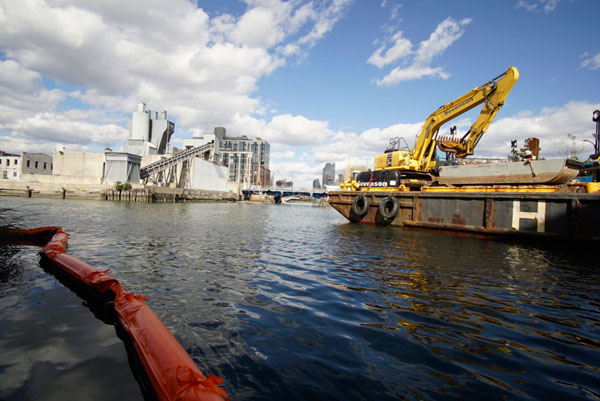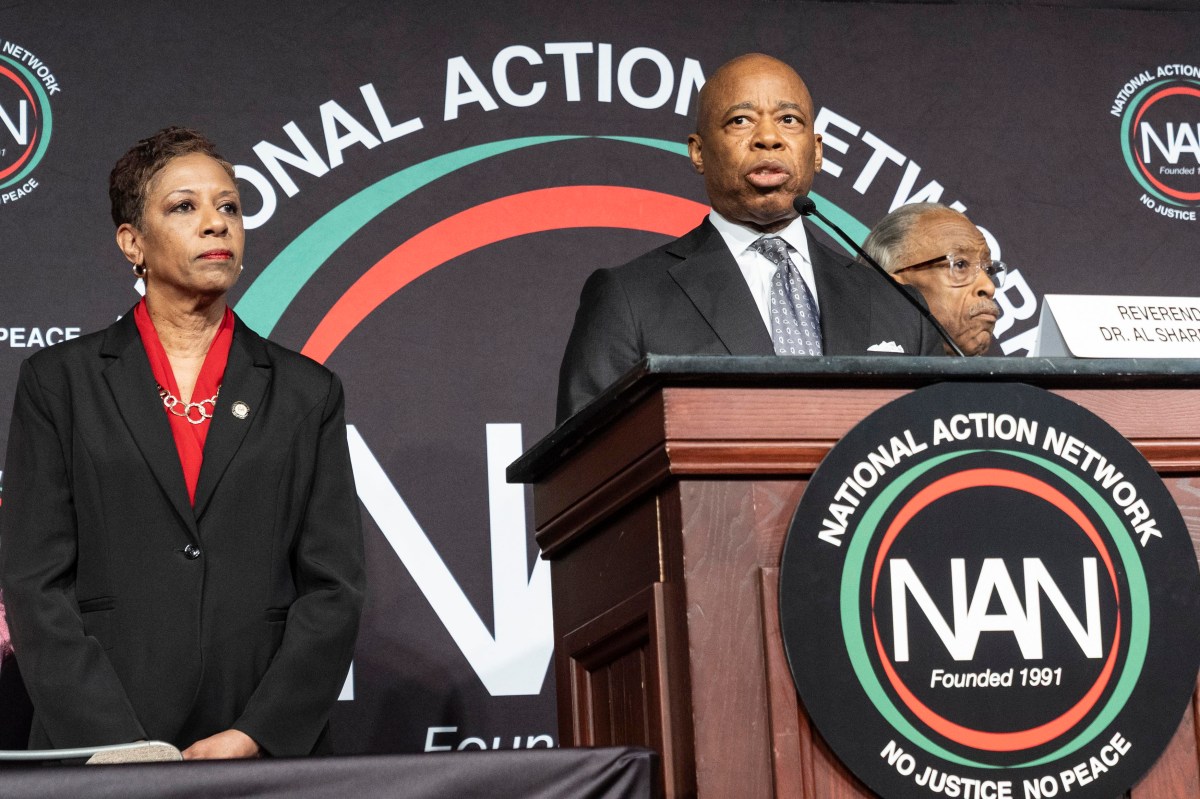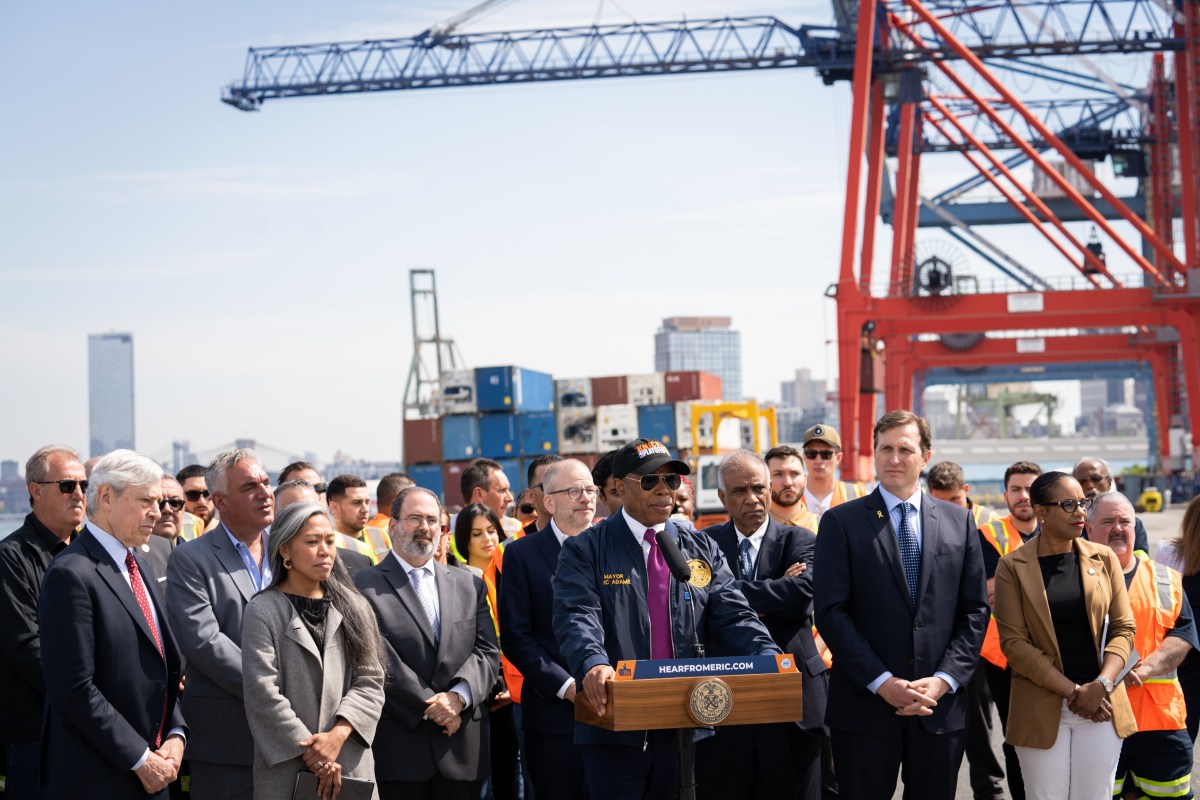A coalition of lawmakers led by four elected officials representing Brooklyn from city to federal levels sent a letter to Mayor Eric Adams last week, asking him to take a stand against a yet-to-be-realized project at National Grid’s depot in Greenpoint.
The project in question is a nearly-completed truck loading station that could be used to bring liquified natural gas in and out of the Greenpoint Energy Center — though the construction itself isn’t the focus of the electeds’ concern. In the absence of what’s known as a “general variance,” which would allow National Grid to transport LNG freely, which is illegal in New York City, the utility will need to request an “event-specific” variance if they need to use the trucking station.
Lawmakers worry that if the city grants such a variance, National Grid will be able to transport the potentially-dangerous LNG through city streets with no environmental oversight, and urged Adams to preemptively announce that it will never approve an emergency variance.
“Unlike a general variance application, ‘emergency’ variance applications would evade any form of environmental review under the State Environmental Quality Review Act,” the missive says. “We are extremely concerned about the prospect of such an end-run around SEQRA, which would enable National Grid to engage in a hazardous, prohibited activity with no environmental review whatsoever.”
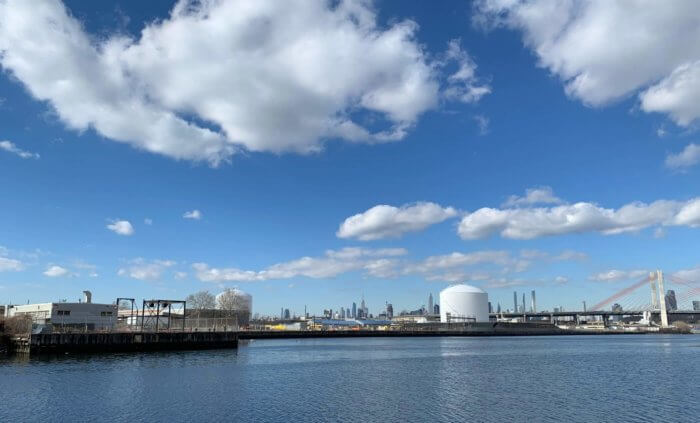
A total of 15 local elected officials, led by Councilmember Jennifer Gutiérrez, state Sen. Julia Salazar, Assemblymember Maritza Davila, and US Rep. Nydia Velázquez, added their signatures to the plea.
“The idea here is to continue to leverage any space that we have at the city, and at the state, and at the federal level to really continue to advance our climate justice goals and this liquified natural gas trucking project I think stands in direct contrast to that,” Gutiérrez told Brooklyn Paper. “We also feel that National Grid, as someone who has to pay for National Grid service, I feel like they’ve been really, really dishonest about the service they provide and how they’re getting it done.”
The councilmember, who represents Williamsburg, Bushwick, and Ridgewood, Queens, specifically referred to the construction of the North Brooklyn Pipeline. National Grid has been widely criticized for building the pipeline through already at-risk communities, and for doing so without informing those communities about the nature of the project. Adams has previously voiced his disapproval of the pipeline.
The letter specifically discusses the safety risks of allowing LNG trucking on busy city streets, including creating dangerous gasses or hard-to-control fires if the gas is spilled or ignited. Building new LNG storage facilities in New York State was banned several years after an explosion at a Staten Island LNG facility killed 40 workers. That ban was lifted across the state in 2015, but remains in place in New York City
“Liquid Natural Gas is a volatile substance that is illegal on our streets,” Salazar said, in a release. “If the mayor truly prioritizes public safety, then let’s make sure that same energy and diligence exists when talking about Nat Grid’s LNG facility transporting its deadly substance up and down the streets of New York.”
Adams’ office did not reply to request for comment.
National Grid spokesperson Karen Young said there are “several material misstatements” in the April 19 letter, and that the arguments made in the missive are “identical” to arguments made in the recently-dismissed lawsuit against the construction of the trucking station.
“Because certain groups are unhappy with courts’ decisions, they are knowingly attempting to influence our key stakeholders by continuing their patently erroneous arguments outside the courts,” Young said. “We are happy to discuss the matter with the signatories to the letter and the Mayor to clarify any confusion.”
In February, Brooklyn Supreme Court Judge Leon Ruchelsman dismissed a suit filed by The Sane Energy Project and the Cooper Park Resident Council that sought to stop construction of the trucking station, alleging that the project was subject to the State Environmental Quality Review Act and required permits from the city and the state’s Department of Environmental Conservation.
Ruhan Nagra, the lawyer representing Sane Energy and the Resident Council, filed an appeal last month.
“By seeking so-called emergency variances to truck LNG through City streets, National Grid is attempting to end-run the State Environmental Quality Review Act,” Nagra said, in a release. “If the City of New York were to grant National Grid any emergency variances in the future, the City would be both putting environmental justice communities at grave risk and sanctioning an alarming circumvention of the law.”
While construction was paused last summer as a result of the proceedings, National Grid was given the green light to continue work on the trucking station after they withdrew a 2016 application for a general variance, and the company estimates that the station is 95 percent finished.
In his dismissal, Ruchelsman said that the construction of the station did not require SEQRA review, and that any event-specific variances granted in the future would comply with the law, not evade it.
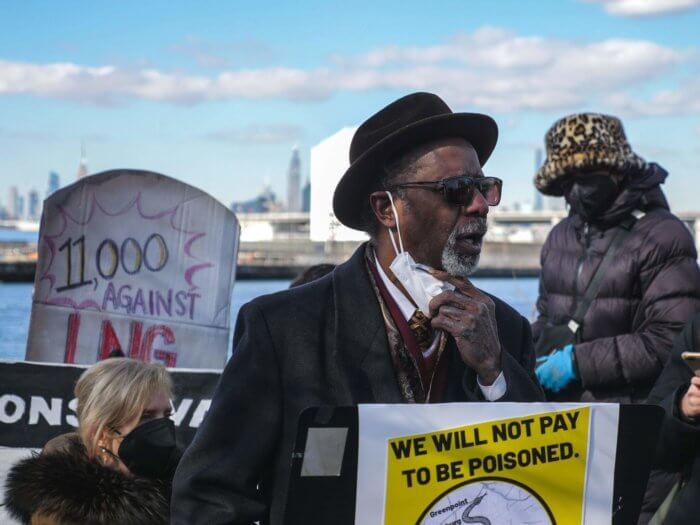
A National Grid representative said the new truck loading station is necessary to replace an existing, 54-year-old station on the property, and that both stations were necessary back-up plans in case of emergencies like extremely cold weather or interstate gas pipeline failures.
Any case-by-case or emergency variances would need to be approved by the FDNY, and that any approved variance would be “limited in scope based on nature and duration of a defined emergency event,” according to a court filing submitted by National Grid earlier this year.
Gutiérrez said she’s frustrated by the utility giant skirting concerns raised by the community about their projects, including the trucking station, especially since the neighborhoods most impacted are low-income communities of color.
The Cooper Park Resident Council, who sued National Grid alongside Sane Energy last year, represents a large public housing development just blocks from the Greenpoint Energy Center, and residents worry about the health effects of living so close to the plant.
“I think corporations as big as National Grid have had a lot of space — too much space — to kind of steamroll our communities under the guise of, ‘this is what you need,’” she said. “And that’s not what’s happening anymore. The power is very much with the community.”





